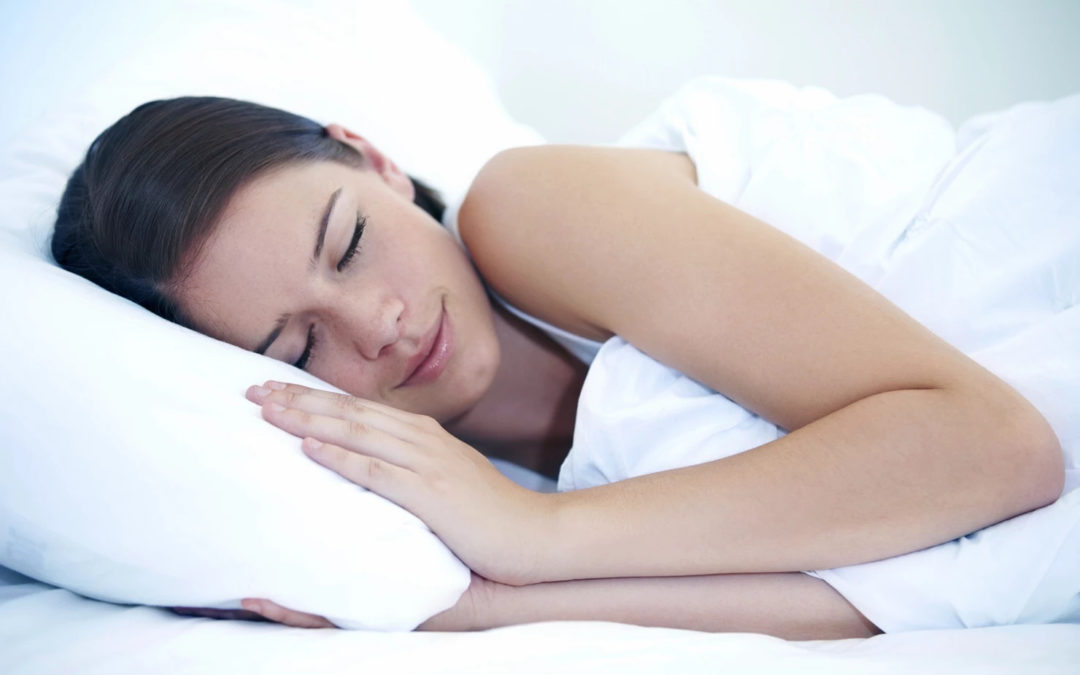With the new year upon us, it’s a great time to reflect on our health and wellness and set some goals for the new year. Since the majority of people who set New Year’s resolutions don’t stick with them after the first week, it is more effective to set simple, achievable goals that can be integrated into even the busiest of routines. For the next couple weeks I will dive into some goals we can all set to set the stage for a happy and healthy 2020!
Wellness Goal #1: Strive for 7-9 Hours of Sleep Per Night
Sleep is a key component of overall health. Research shows that not getting enough sleep affects many areas of our lives. Among them, appetite and hunger may increase due to hormonal changes and fatigue may lead to reduced activity levels, thus contributing to weight gain. People who sleep less than 7 hours per night in the short term may have trouble with complex mental tasks, relationship stress, impaired memory, lack of alertness and greater likelihood of car accidents. Over time, chronic lack of adequate sleep can contribute to the development of diabetes, heart disease, stroke, lack of sex drive, obesity and depression.
The following tips can help you sleep better at night:
1) Increase bright light exposure during the day. Natural sunlight or bright light during the day helps keep your circadian rhythm healthy. This improves daytime energy as well as nighttime sleep quality and duration.
2) Reduce blue light exposure in the evening. Blue light tricks your body into thinking it’s daytime. Stop watching TV and turn off bright lights 2 hours before bed. Another option is to use blue light blocking glasses and/or install an app that blocks blue light on your smartphone.
3) Stop consuming caffeine late in the day. Caffeine can dramatically decrease sleep quality if consumed in large quantities in the late afternoon or evening.
4) Reduce long daytime naps. While short power naps can be beneficial, long napping during the day can negatively affect your sleep. If you have trouble sleeping at night, shorten or stop napping during the day.
5) Try to sleep and wake at consistent times. Being consistent with sleeping and wake times can improve long-term sleep quality. Try to get into a regular sleep/wake cycle, even on weekends. If possible, try to wake naturally at the same time each day.
6) Take a melatonin supplement. Melatonin is a popular and easy way to improve sleep quality and fall asleep faster. Take 1-5mg 30-60 minutes before heading to bed.
7) Don’t drink alcohol. Alcohol before bed can reduce nighttime melatonin production and lead to disrupted sleep patterns.
8) Optimize your bedroom environment. Eliminate light, noise and artificial light from devices such as alarm clocks.
9) Set your bedroom temperature. Body and bedroom temperature can dramatically impact sleep quality; in fact, some research finds that temperature impacts sleep more than external noise. For most people, around 70° F is optimal, however test different temperatures to find out which is most comfortable for you.
10) Relax and clear your mind in the evening. Techniques such as hot baths or meditation may help you fall asleep faster.
11) Rule out a sleep disorder. There are many conditions that can cause poor sleep, including sleep apnea, sleep movement disorders, circadian rhythm disorders and medical conditions such as depression and thyroid disease. A sleep specialist can help determine the cause of consistent sleep problems.
12) Get a comfortable bed, mattress and pillow. The comfort of your bed, mattress and pillow can greatly impact sleep quality and contribute to joint and/or back pain. Try to buy a high quality mattress and bedding every 5-8 years.
13) Get regular exercise. Exercising during the day is one of the best science-backed ways to improve sleep and health. Since exercise has a stimulating effect, some people find evening exercise interferes with their sleep. If this is a problem for you, try moving your exercise routine to earlier in the day.
14) Don’t eat late in the evening. Consuming a large meal before bed can lead to poor sleep and hormone disruption. However, there is some variability in this as some people sleep well after eating a high carb meal 4 hours before bed. Experiment with your evening eating to see what has the best effect on your sleep.

